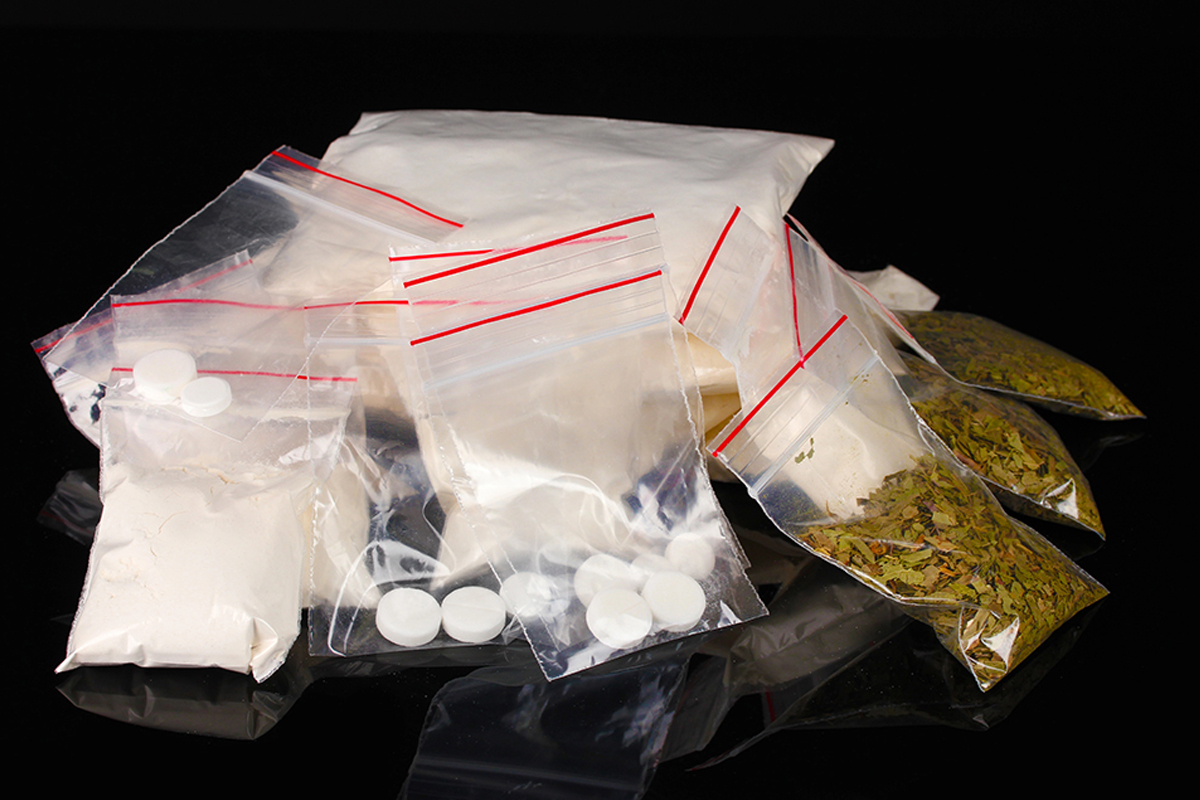If you are facing drug offence charges, you need a criminal defence lawyer in Calgary to look at your case as soon as possible.
Drug offences in Canada include possession, trafficking, production, importation, and exportation of controlled substances. If you are charged with simple possession, you may benefit from the expertise of our Drug Possession Lawyers Calgary, while more serious trafficking allegations are addressed by our seasoned team of Drug Trafficking Lawyers Calgary.
The severity depends on the type of drug involved, the amount, and the specific activity.
- Penalties range from discharge or fines for simple possession to life imprisonment for trafficking certain substances. For additional insights on fines, you can refer to our Fine Lawyers Calgary page.
- Most drug offences are hybrid, which means the Crown can choose to proceed by indictment for more serious cases or by summary conviction for less serious situations.
- For indictable procedures, maximum penalties can range from 7 years to life imprisonment. See our discussion on the Jail Sentence in Calgary for more context.
- While summary convictions typically result in fines up to $5,000 and/or imprisonment up to two years.
Strategic Criminal Defence is a top Google-rated criminal defence firm in Calgary, with over 500 5-star reviews. Our firm, and our experienced legal team, have defended clients in over 10,000 criminal cases. Leveraging our extensive network of lawyers and decades of experience, we craft defence strategies to help those accused of drug offences beat the charge.
The lawyers at Strategic Criminal Defence are both highly experienced and dedicated to defending your rights and future in the face of these charges. Contact a lawyer today by calling (403) 719-6410.
Key Takeaways
- In Canada, the Controlled Drugs and Substances Act (CDSA) makes it against the law to own, sell, make, bring in, or send drugs.
- The charges are more or less serious depending on the type of drug (Schedule I, II, III, or IV), the amount involved, and the activity itself.
- If you are found guilty of possession, you will still have a criminal record, but the charges are usually less serious than trafficking or production.
- If you are caught with certain drugs, like cocaine or meth, you could spend up to seven years in jail.
- If you deal, make, or bring in a lot of Schedule I or II drugs, you could spend the rest of your life in prison.
- Most drug offences are hybrid. This means that the Crown can choose to proceed with summary or indictable offences.
- Most of the time, bail conditions say that you can’t have drugs, weapons, or drug paraphernalia, use a cell phone, or go to certain places.
- Some people who get caught with drugs for the first time might be able to avoid jail time or go to a diversion program.
- With the right lawyer, you can often fight drug charges. This may include arguing Charter breaches, that you didn’t know what was going on, or that there wasn’t enough evidence. If you need guidance before charges are formally laid, consider our Pre‑Charge Legal Advice Calgary services.
- Even if a conviction seems likely, our lawyers can sometimes work out lower charges or other options.
How Our Lawyers Help With a Drug Charge
A Strategic Criminal Defence lawyer can help you with these serious charges.
- First, we can help you figure out if and how you should talk to the police before charges are even filed.
- Next, we can can get things like electronic records, witness statements, or videos that could help prove a defence or show that you didn’t know about or have control over the drugs.
- Our lawyers can hire experts, like forensic analysts, to look into the legality of search warrants or the accuracy of drug identification and weighing.
- We know what the Crown has to prove and how to respond to it, such as that you knew about the drugs, were in charge of them, and had a plan for what to do with them.
- Our lawyers know how to effectively deal with the courts. We might be able to help you get your charges dropped or suggest other options, like alternative measures programs.
Consequences of a Drug Offence Charge
In Canada, the consequences of being charged with a drug crime can vary a lot depending on the circumstances.
- Fines, probation, and long prison sentences are just a few of the many ways to punish someone. These can affect your future for a long time.
- Most drug crimes can be processed as either summary or indictable offences. The severity of the crime, the accused’s past, and other things will determine this choice.
- The CDSA schedules decide how to punish people who have drugs in their possession. If you are caught with Schedule I drugs like cocaine, heroin, or meth, you could go to jail for up to seven years.
- If you are found guilty with a summary offence, you could have to pay a fine of up to $1,000 and/or spend six months in jail for your first offence. There are no minimums for drug possession.
There are much harsher punishments for trafficking, possession with the intent to traffic, and production.
- If someone is charged with these crimes, the worst punishment they can get is life in prison for Schedule I and II drugs.
- If you sell drugs on Schedule III, you could go to prison for up to 10 years.
- If you sell drugs on Schedule IV, you could go to prison for up to 3 years.
- If these crimes are tried summarily, the most severe punishment is usually 18 months to 2 years in prison.
If you are convicted of a drug crime, you will have a criminal record that can make it harder to get a job, find a place to live, volunteer, or travel to the US.
Drug Offence Charge Defences
There are a number of legal defences that could help you if you have been charged with a drug crime in Canada.
Here are some ways you might be able to defend yourself against drug charges:
- Search and seizure violations of the Charter: No one should have their things searched or taken by the police without a good reason. Police can only search you, your home, or your car if they have a a valid warrant, your permission, or if they have to search you because you are under arrest. If the police searched your home without a warrant or your permission, or if they did more than what a warrant said they could do, they may have broken the Charter.
- Lacking Knowledge: The Crown must prove beyond a reasonable doubt that you knew about the drugs and had some control over them. If drugs were found in a car, home, or other space that more than one person uses, it could be you didn’t know they were there. If they were found in a friend’s backpack, a borrowed car, or a package that was delivered to your house they could have been someone else’s.
- Identity: In drug trafficking cases, the Crown has to show that you sold, moved, or delivered the drug. If the officers were working undercover and didn’t see the seller very clearly, or if the deal took place in dark or crowded places, this could lead to possible identity defences. If the police identification evidence is based only on short observations or vague descriptions, our lawyers can ask if the Crown has proven identity beyond a reasonable doubt.
Drug Offence Charge Investigation
Drug investigations often begin with tips from the public about possible drug dealing, information from secret informants, or observing suspicious behaviour.
- If the police think someone is selling drugs, they might go undercover to pretend to be buyers.
- They document these controlled buys very carefully and keep the drugs they bought as proof.
- Officers might also watch places where they think drugs are being sold or made.
- In possession cases, investigations often start with traffic stops where police claim to see signs of drug use. They then use this as grounds to search a person or vehicle.
- Before executing search warrants, police often perform surveillance to establish patterns and identify all individuals involved.
Bail Conditions for Drug Offence Charges
If you are charged with a drug crime, you may be able to get out on bail while you wait for your trial.
- If you are released, one of the most common conditions of bail is that you don’t drink alcohol or use drugs.
- The bail conditions are much stricter if you commit a more serious crime, like making drugs or selling drugs.
- You could be put on house arrest or told to stay inside at certain times. You can only leave the house for certain things, like going to work, seeing the doctor, or meeting with your lawyer.
- The court may tell you where to live and not let you move without their permission. You will need to check in with a police station or bail supervisor on a regular basis, sometimes even every week. If you are accused of trafficking, especially if you think you are connected to a gang, you might not be able to hang out with people who are also accused of using or selling drugs.
- In very serious cases, the court might need one or more sureties. These are people who say they will keep an eye on you and lose money if you break your bail conditions.
- If you don’t follow these bail conditions, you could be arrested and held in jail until your trial. This would also lead to more criminal charges.
For more information, visit our page on The Bail Hearing Process in Calgary.








